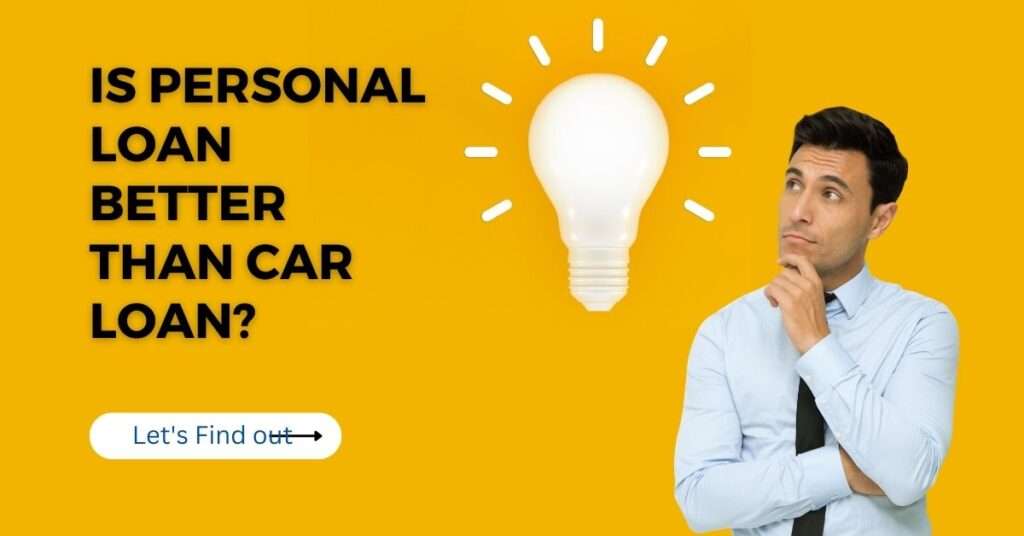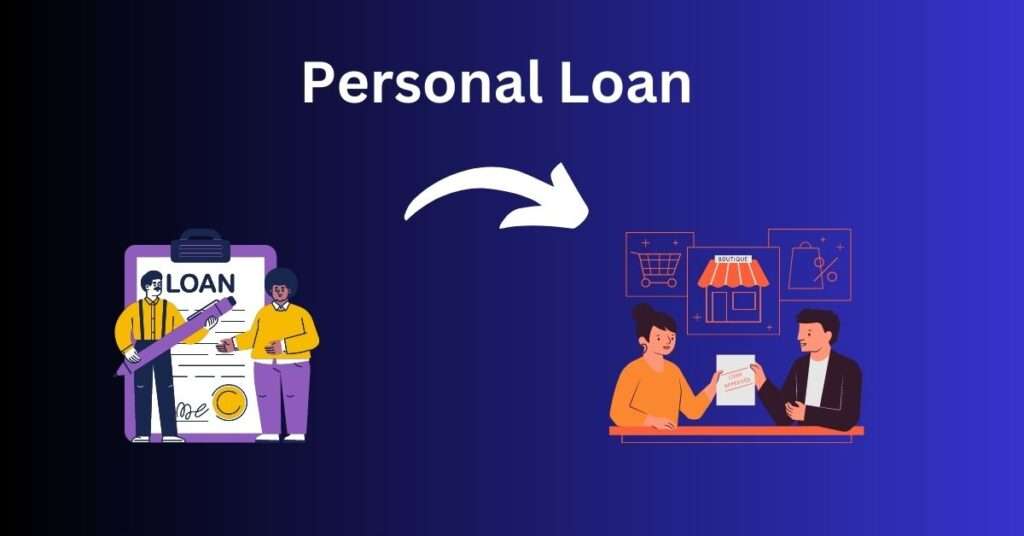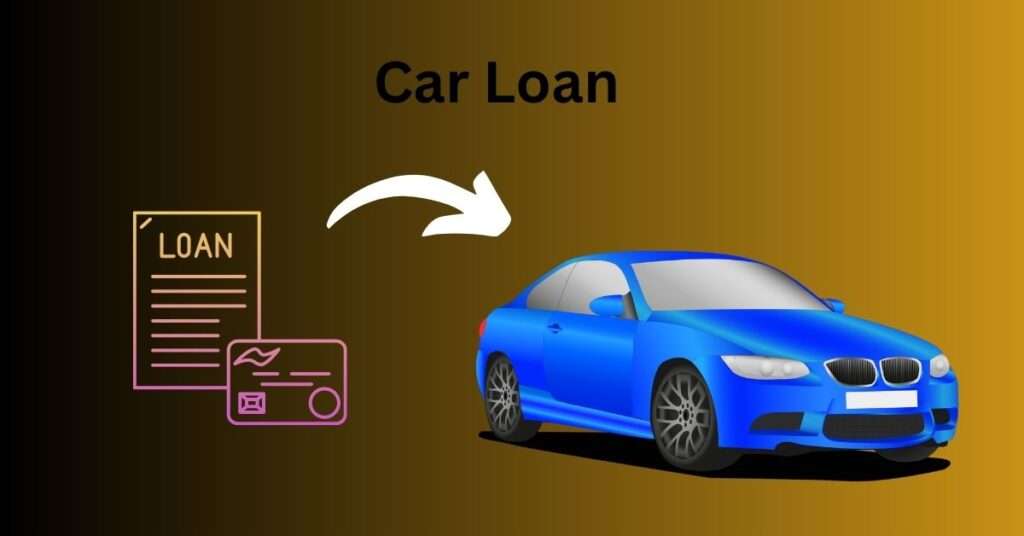Table of Contents

Introduction
In today’s world, buying a car is a dream of many. Individuals often find themselves in need of some financial assistance regarding this purpose. Two common options available to them are car loan vs personal loan. And people often think is personal loan better than car loan? Both types of loans serve distinct purposes and come with their own set of advantages and disadvantages. This article aims to explore the differences between car loan vs personal loan in order to find out is personal loan better than car loan and in which situations.
1. Understanding Personal Loans
Definition of Personal Loans

A personal loan is a type of loan provided by financial institutions, such as banks, credit unions, or online lenders, to individuals for various personal purposes. Unlike loans that are specifically designated for a particular use (such as a car loan or mortgage), personal loans are unsecured, which means they are not backed by collateral like a house or a car. Instead, personal loans are granted based on the borrower’s creditworthiness, income, and other relevant factors.
Before considering is personal loan better than car loan you need to know how personal loan works.
Here’s how a personal loan for a car typically works:
- Loan Application: You apply for a personal loan from a lender, such as a bank, credit union, or online lender. The application process involves providing personal and financial information, including your income, employment details, credit history, and the desired loan amount.
- Loan Approval: The lender reviews your application, creditworthiness, and financial situation to assess your eligibility for the loan. If approved, the lender specifies the loan terms, including the interest rate, loan amount, repayment period, and any applicable fees.
- Loan Disbursement: Once the loan is approved, the lender disburses the approved loan amount directly to your bank account. You can then use those funds to purchase the car of your choice.
- Car Purchase: With the loan amount in hand, you can proceed to buy the car from a dealership or a private seller. Since you are using a personal loan, you are considered a cash buyer, which means you have more flexibility in negotiating the price and terms of the purchase.
- Repayment: After purchasing the car, you begin repaying the personal loan according to the agreed-upon terms. The repayment structure typically involves making monthly installments that consist of both principal (the loan amount) and interest. The repayment period can vary, usually ranging from a few months to several years, depending on the loan agreement.
- Interest Charges: Personal loans for cars come with interest charges. The interest rate is determined by the lender based on various factors, such as your credit score, income, and the loan amount. You will pay interest on the outstanding loan balance over the repayment period, adding to the total cost of borrowing.
- Ownership: With a personal loan for a car, you own the vehicle outright from the start. The lender does not hold the title as collateral since the loan is unsecured. However, you are still responsible for repaying the loan as per the agreed-upon terms.
You also need to understand the pros and cons of personal loan to make a decision is personal loan better than car loan
Pros and Cons of Personal Loans
Pros:
- Flexibility: Personal loans are flexible in terms of nature. You can use the money for a variety of things with no limits.
- No Collateral Required: Unlike car loans, personal loans are typically unsecured, eliminating the need to provide collateral such as a car title.
- Quick Approval: Personal loans often have a faster approval process compared to car loans, allowing you to access funds more quickly.
Cons:
- Higher Interest Rates: Personal loans may have higher interest rates compared to secured loans like car loans, as they carry more risk for the lenders.
- Creditworthiness Matters: Lenders consider your credit history and credit score when determining eligibility and interest rates for personal loans.
- Limited Loan Amounts: Personal loans may have lower maximum borrowing limits compared to car loans, as they don’t involve the collateral value of a specific asset.
2. Exploring Car Loans
Definition of Car Loans

A car loan, also known as an auto loan or vehicle financing, refers to a type of loan specifically designed to help individuals purchase a car. It is a financial arrangement in which a lender provides the borrower with funds to buy a vehicle, and the borrower agrees to repay the loan amount over a specified period, typically with interest. Car loans are secured loans, meaning the vehicle itself serves as collateral for the loan.
Before considering is personal loan better than car loan you need to know how car loans work.
Here’s a step-by-step breakdown of how car loans typically work:
- Loan Application: You need to submit an application to a lender, such as a bank, credit union, or dealership, requesting a car loan. The application includes personal and financial information, such as income, employment details, credit history, and the desired loan amount.
- Loan Approval: The lender (bank or NBFC) will evaluate your application, creditworthiness, and ability to repay the loan. If approved, the lender specifies the loan terms, including the interest rate, loan amount, repayment period, and any additional fees or conditions.
- Down Payment: You may require to make a down payment, which is an initial payment made towards the total cost of the car. The down payments both shows the your commitment and lowers the loan amount.
- Vehicle Selection and Purchase: After the loan is approved, you can now choose a car from a dealership or a private seller. The lender may have certain restrictions or conditions on the type, age, and condition of the vehicle that can be purchased using the loan.
- Loan Disbursement: Once you select a car, the lender disburses the approved loan amount directly to the seller or dealership. In some cases, you may receive the funds and then use them to complete the purchase.
- Repayment: You need to start making regular repayments according to the agreed-upon terms. Typically, car loans have monthly installments consisting of both principal (the loan amount) and interest. The repayment period can range from a few years to several years, depending on the loan agreement.
- Interest Charges: The lender charges interest on the outstanding loan balance, which is the cost of borrowing. The interest rate may be fixed or variable, depending on the loan terms. The borrower pays interest over the loan term, and the total interest paid depends on the loan amount, interest rate, and repayment period.
- Late Payments and Penalties: If you fail to make timely repayments, there may be penalties or late fees charged by the lender. Late payments can also negatively impact the borrower’s credit score.
- Title and Ownership: Until you repay the loan, the lender typically holds the car’s title as collateral. Once the loan is fully repaid, the lender releases the title, and you become the sole owner of the vehicle.
You also need to understand the pros and cons of car loan to make a decision is personal loan better than car loan
Pros and Cons of Car Loans
Pros:
- Lower Interest Rates: Car loans generally have lower interest rates compared to unsecured personal loans. The vehicle acts as collateral, reducing the risk for the lender.
- Higher Loan Amounts: Car loans often allow you to access higher loan amounts since they are based on the value of the vehicle being purchased.
- Easier Approval for Lower Credit Scores: Car loans may be more accessible for individuals with lower credit scores compared to personal loans.
Cons:
- Restricted Usage: Car loans are specifically intended for purchasing a vehicle and cannot be used for other purposes.
- Collateral Requirement: Car loans require collateral in the form of the vehicle itself, which means you can lose the car if you fail to make timely payments.
- Total Loan amount: You won’t get car’s actual value as loan. Instead Banks or any other lender usually finance 80% of the car’s value, in rare cases up to 90%. That means you have to pay the remaining of their own money for buying the car.
3. Comparing Car Loan vs Personal Loan
When considering whether is personal loan better than car loan for your particular situation, several factors need to be taken into account.
Factors to Consider ( is personal loan better than car loan)
You need to the following factors to make a decision about is personal loan better than car loan.
Interest Rates and Loan Terms
Personal loans may have higher interest rates compared to car loans. Car loans benefit from lower interest rates due to the collateral provided by the vehicle. Additionally, tenure of personal loan are typically shorter than car loan.
Loan amount
Financial institutions sanctions car loan only up to 80% of the car’s value. Meaning you have to gather the remaining amount from somewhere else. Where as in personal loans you can get full amount depending on their credit score.
Collateral Requirements
Car loans require collateral in the form of the vehicle being financed. Personal loans are unsecured and do not involve collateral, making them more accessible even if you do not possess valuable assets.
Flexibility and Usability
Personal loans offer more flexibility since they can be used for various purposes. Car loans, on the other hand, are solely intended for purchasing vehicles.
Impact on Credit Score
Both personal loans and car loans can impact credit scores. Timely repayments on either type of loan can positively affect credit scores, while defaults or late payments can have negative consequences.
Affordability and Repayment Options
It is crucial to consider the affordability of loan repayments and the available repayment options. Evaluate monthly installments, repayment periods, and any potential penalties or fees associated with each loan type.
4. Determining the Better Option
When to Choose a Personal Loan
A personal loan may be the better option for you when:
- You require funds for various purposes beyond purchasing a vehicle.
- You do not possess valuable assets to use as collateral.
- You need a loan with a faster approval process.
When to Choose a Car Loan
A car loan may be the better option for you when:
- You intend to purchase a vehicle and needs financing specifically for that purpose.
- You want to have longer repayment periods as it will make monthly installment manageable.
- You want lower interest rates due to the collateral provided by the vehicle.
Considerations for Decision Making: Is personal loan better than car loan
When deciding is personal loan better than car loan, it is essential to carefully evaluate individual circumstances, financial goals, and priorities. Comparing interest rates, loan terms, collateral requirements, and repayment options can help make an informed decision.
Conclusion: Is Personal Loan Better Than Car Loan?
The question is personal loan better than car loan reveals that the answer to whether a personal loan is better than a car loan depends on individual circumstances and preferences. Let’s examine a few case studies to illustrate situations which loan may be the better option in which circumstances.
Case Study 1: Sarah’s Flexible Financing
Sarah, a working professional, needs to purchase a car for her daily commute but also wants the flexibility to allocate funds for other purposes. In this scenario, a personal loan proves to be the better choice. With a personal loan, Sarah have the flexibility to allocate funds beyond the car purchase, and enjoy a shorter repayment period. This enables her to pay off the debt sooner.
Case Study 2: John’s Credit Score Concerns
John, a recent graduate, has a limited credit history and a lower credit score. While he needs a vehicle for his new job, he may struggle to secure a car loan at a favorable interest rate due to his creditworthiness. In this case, a personal loan could be the better option. Personal loans are often more accessible for individuals with lower credit scores, and John may have a better chance of approval. By opting for a personal loan, he can establish a positive credit history through timely repayments and potentially improve his credit score for future financial endeavors.
Case Study 3: Mike’s good credit score
Mike, a middle-class person, has been putting money aside to buy his ideal car. He is employed and has a high credit rating. A car loan is a preferable option in this situation for a number of reasons. Car loans generally offer lower interest rates compared to unsecured personal loans. Since the vehicle serves as collateral, lenders have more security, resulting in lower interest charges for Mike. Mike can opt for a longer loan term, spreading out his payments over several years, resulting in lower monthly obligations that align with his budget.
In these case studies, sometimes the personal loan emerges as a better option based and sometimes car loan emerges as a better option depending on specific needs and circumstances of the individuals involved. However, it’s important to note that each case is unique, and individuals should carefully evaluate their own financial situation before making a decision about is personal loan better than car loan.
Ultimately, is personal loan better than car loan depends on factors such as interest rates, loan terms, collateral requirements, flexibility, and individual financial goals. By considering these factors and conducting thorough research, individuals can make an informed decision that aligns with their specific needs and preferences. It’s advisable to consult with financial advisors or loan specialists to assess the suitability of each loan type based on personal circumstances.
In conclusion, while the question of is personal loan better than car loan does not have a one-size-fits-all answer, understanding the features, benefits, and considerations of each loan type empowers individuals to make an informed decision that best suits their financial goals and circumstances.
FAQs
- Are personal loans better for consolidating debt?
- Personal loans can be an excellent option for consolidating debt since they offer flexibility and potentially lower interest rates. However, it is essential to compare offers from different lenders and consider personal financial circumstances before making a decision.
- Can I use a car loan to purchase a used vehicle?
- Yes, car loans can be used to finance the purchase of both new and used vehicles. Lenders typically offer car loans for a wide range of vehicles, provided they meet certain criteria.
- Will applying for a personal loan or car loan affect my credit score?
- Applying for either loan type may result in a temporary decrease in your credit score due to the hard inquiry. However, responsible management and timely repayments can have a positive impact on your credit score over time.
- Can I pay off a personal loan or car loan early?
- In most cases, you can pay off their loans early without incurring any penalties. However, it is advisable to review the terms and conditions of the specific loan agreement to confirm this.
- What happens if I default on a personal loan or car loan?
- Defaulting on either loan type can have severe consequences, including damage to your credit score and potential legal action from the lender. It is crucial to communicate with your lender if you encounter financial difficulties to explore possible alternatives or repayment options.